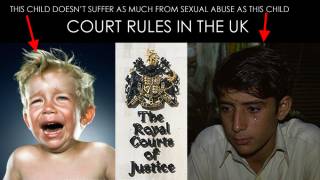Children Born In December 39% More Likely To Be Diagnosed With ADHD
Source: cbc.ca
Video from: YouTube.com
ADHD may be overdiagnosed in youngest classmates
An 11-year Canadian study suggests the youngest children in a classroom are more likely to be assessed as having attention deficit hyperactivity disorder (ADHD) compared to their older classmates, raising concerns that many schoolchildren are wrongly being diagnosed and prescribed medication.
University of British Columbia researchers focused on 937,943 students who were six to 12 years old between Dec. 1, 1997, and Nov. 30, 2008 in a province where the cutoff age for entry to school is Dec. 31. The study, published in Monday’s Canadian Medical Association Journal, found children born in December were 39 per cent more likely to be diagnosed and 48 per cent more likely to be treated with medication for ADHD, compared to children with a January birthday.
"The relative maturity of children is affecting the diagnosis, so in other words, the lack of maturity in younger children is making them more likely to get the diagnosis, and we can interpret that as the fact that sometimes a lack of maturity is being misinterpreted as symptoms of a neurobehavioural disorder of ADHD," the study’s lead author, Richard Morrow, health research analyst with the Therapeutics Initiative at the University of British Columbia, told CBC News.
As a result, he says, there are concerns that ADHD — the most commonly diagnosed neurobehavioural disorder in children — is being overdiagnosed and overtreated in younger students in a classroom.
Exposing kids to unnecessary drugs a concern
In a news release, Morrow said: "Our study suggests younger, less mature children are inappropriately being labelled and treated. It is important not to expose children to potential harms from unnecessary diagnosis and use of medications."
The cutoff age for children entering school for the first time (either kindergarten or Grade 1) in B.C. and other provinces is Dec. 31. That means some students with December birthdays could be nearly a full year younger than other kids in their class. Those younger students may also appear to be immature, something researchers have labelled as the "relative-age effect," which could also influence both academic and athletic performance.
[...]
Read the full article at: cbc.ca
Also tune into:
Kevin P Miller - Generation Rx, SSRI’s & Happy Pills
Kevin P Miller - Pharmaceutical Control, School Shootings & Psychotropic Drugs
Dr. Ann Blake-Tracy - The Danger of SSRI’s (Antidepressants)






















